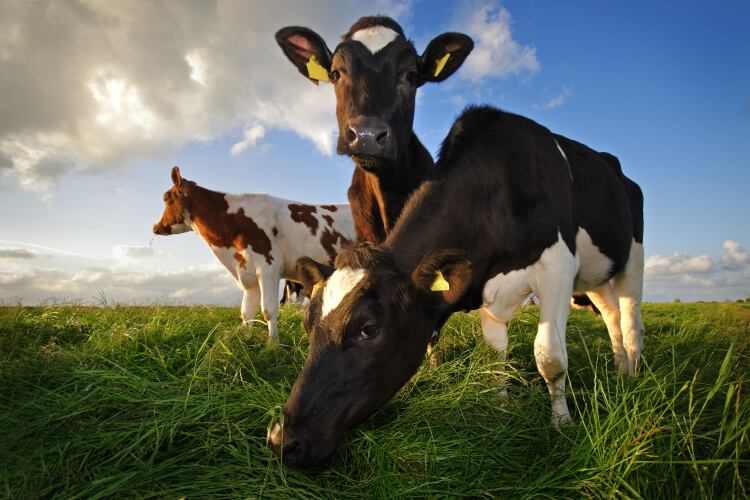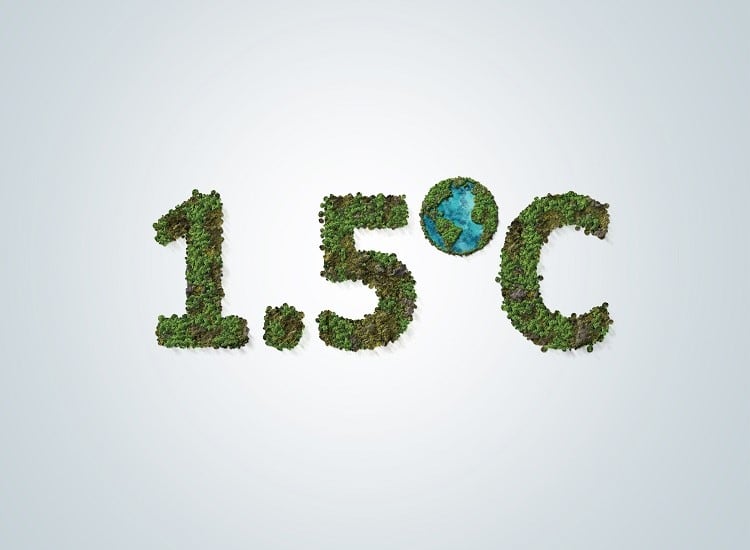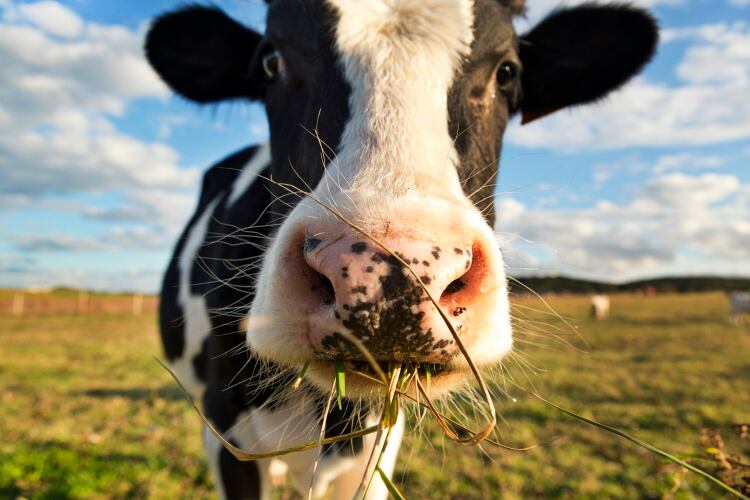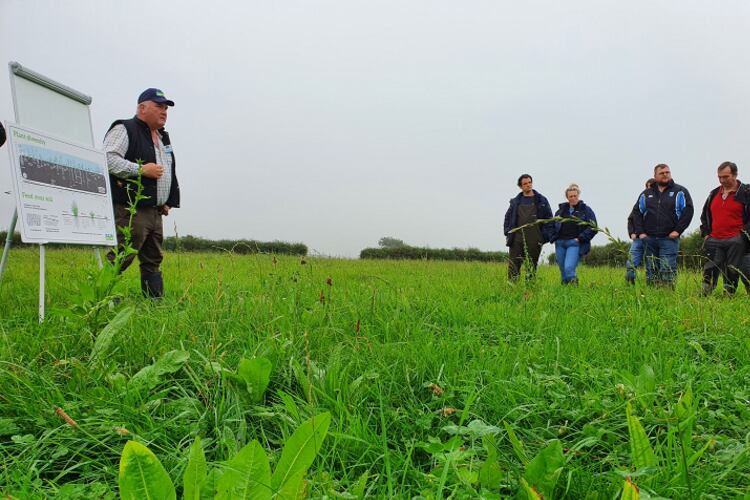The US Department of Agriculture recently unveiled the 70 projects that will be supported as part of the first funding pool totalling US$2.8bn. DairyReporter rounds-up some of the dairy industry pilots that have been backed by the Department – and how these are set to be realized . . .
Value to farmers
Dairy Farmers of America (DFA) is planning to leverage its vast cooperative farmer network in a pilot project that aims to establish ‘a powerful self-sustaining circular economy model’. Explaining the co-op’s intentions, Kevin O’Donnell, DFA’s senior vice-president for sustainability, told DairyReporter: “The Climate Smart Commodities pilot will provide DFA and our family farm-owners with the opportunity to drive scale in low-carbon farming practices that build on existing work, so this is an exciting opportunity to provide more support, technologies, and resources for our farm families’ dairies in the identified pilot milksheds.
“Our prioritized focus areas include practices that enhance soil health and increase soil carbon sequestration, plus other practices that reduce greenhouse gas emissions while providing value to farmers.” - Kevin O’Donnell, Dairy Farmers of America
“The grant will allow us to provide methane-reduction technologies and practices to our family farm owners that today are not as widely implemented as they could be due to financial constraints,” he continued. “Providing these resources will allow us to accelerate the learning process of what is effective at scale and what is not. It’s a learning journey.”
DFA’s project has a grant ceiling of US$45m and will cover 13 primary states, with the co-op hoping to begin work on the pilot in the coming months. “Like other grant recipients, we are eagerly awaiting more information from USDA regarding their timeline for program implementation, but are hoping to begin rolling out the pilot in early 2023, once we get the final go-ahead from the USDA,” O’Donnell told us. “Incentives such as cost-sharing opportunities and technical service support are included in the pilot and will help provide farmers with the assistance they need to be successful in the pilot.”
Self-sustaining, market-based network
Truterra, the sustainability arm of Land O’Lakes, has welcomed the news that its project Climate SMART - which stands for ‘scaling mechanisms for agriculture’s regenerative transformation’ - had been approved, with a funding ceiling of up to US$90m. The pilot will stretch across 28 states reaching up to 20,000 farmers and dairy producers. Its aim would be to promote ‘a self-sustaining, market-based network’ to help scale production of climate-smart corn, soybeans, wheat, cotton and milk, using initial funding from USDA and eventually self-funding through the sale of climate-smart commodities and ecosystem credits.
Tom Ryan, president of Truterra, delved into the plans: “The pilot project will leverage millions in new funding to provide farmers and their ag retailers a fuller package of infrastructure and cost-sharing resources for transitioning to climate-smart practices.
“These resources have three key components. First, technical assistance. Agronomic support will be delivered through our network of project partners, and could include new training opportunities, opportunities for cost-sharing for new conservation agronomist positions and equipment and peer-to-peer mentorship program opportunities.
“Second is financial assistance. Partnerships with companies like FarmRaise will help farmers connect to existing public funding opportunities. New downstream partners will potentially provide additional cost-share and incentive opportunities.
“The third component is data management. This pilot project will leverage Truterra’s sustainability tool to help farmers capture data in a meaningful way and use it for verification in climate-smart commodity markets. We will also aim to streamline data collection through technology partnerships like with Farmobile.”
Increased land value
Grass-fed organic dairy producer Maple Hill Creamery is hoping to use the funding, which has a grant ceiling of US$20m, to expand climate-smart markets for producers by providing incentives and training in order to forge a network of partners. The initiative is hoped to enhance the viability of farms who embrace sustainable practices. The project will be carried out in the state of New York. Jim Hau, president of Maple Hill, explained: “This project will allow for greater sharing of best practices, continuous training/learning of new developments, and measurement of those practices and their impact on the land. This will drive healthier pastures, leading to healthier milk, which benefits the consumer.”
Rounding-up the key benefits from the project, he said: “The key benefit is improved soil health, which supports the carbon sequestration benefits of our pastures and reduces greenhouse gases. Grass-fed organic dairy farming reduces the world’s carbon footprint by its very nature. There is no tilling releasing carbons into the atmosphere, there are no chemical fertilizers, no herbicides, no pesticides.”
“We only feed the cows grass, as nature intended it. Taking care of the land so that grass is the healthiest it can be, gets us the best milk.” - Jim Hau, Maple Hill Creamery
On the funding’s importance to extending climate-smart practices to small farmers, Hau added: “Small family farmers do not always have a source for cost effective carbon or ecosystem verification services due to lower acreage and the inability to spread costs across larger volumes. As a result, the ability to measure outcomes and adjust practices may not be available to them. With this grant, they will be able to participate in the broad program across Maple Hill farms and not only share and learn best practices, but they will be able to measure outcomes.
“We know grass-fed organic farming is the most sustainable way to do dairy farming. However, this program will allow us to standardize best practices and measure outcomes so that the best practices are always implemented within the best approach to dairy farming.”
Hau said he anticipates that most of Maple Hill Creamery’s farmers will participate in the project, ‘as their efforts will be funded, the implemented practices will increase their land value through productivity.’ “And importantly, we have a network of farmers who generally believe this is the right way to do dairy farming and they are highly motivated to do it in the best possible way,” he concluded.
Boosting carbon insetting practices
Organic Valley is set to accelerate the adoption of 1,200 new carbon reduction and removal projects on 500 of its member farms across 28 states over the next five years. The co-op’s project will build on its recent study into carbon sequestration, which demonstrated just how carbon sequestration could reduce greenhouse gas emissions. The funding will also help the co-op to reach carbon neutrality without using carbon offsets.
“Through this program, Organic Valley will include direct farmer payments for carbon reduction and removal, as well as cost-share for design and implementation of climate-smart agriculture practices,” the co-op said in a statement. “Climate Smart Practices included in Organic Valley's Carbon Insetting Program include improvements to grazing, pasture and croplands, manure management, feed supplements, agroforestry and solar energy.”
Nicole Rakobitsch, director of sustainability at Organic Valley, commented: “This strategic funding offered by USDA allows us and others to innovate in a meaningful way with farmers and bring to the market climate friendly food.
“Organic Valley is creating a model approach to reducing carbon emissions, and we believe that model can be replicated across the food sector.” - Nicole Rakobitsch, Organic Valley
“As we advance carbon insetting, we will share our learnings and best practices. Ultimately, we are excited to offer consumers the products they are demanding in the marketplace: dairy and eggs with a low carbon footprint.”




